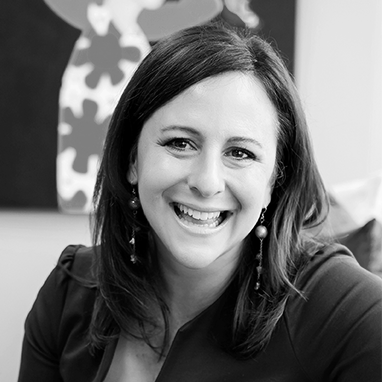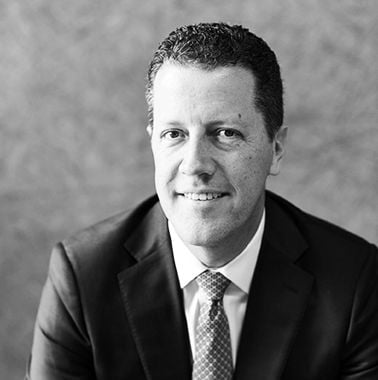There was a vision of the future when the little man had the same power as big business. For me, the symbolic start date for the realization of that vision was January 22, 1984. That was the release date of the now-famous Apple commercial launching the first real personal computer. In the video, you see the masses huddling around a screen showing a depiction of 1984’s “Big Brother.” The culmination of that commercial was a disruption of the broadcast in the form of a sledgehammer and the masses waking up.
We had come a long way from that day 37 years ago. The progression was the PC, then the internet, smartphone apps, and the rise of social media.
Every step of that technological and societal progression enabled more and more small businesses and solopreneurs to “punch above their weight.” The grassroots had a voice and the ability to reach millions with a single tweet, article, or video.
It has been incredibly empowering to watch over the years. This societal shift has profoundly impacted how we do business, interact with each other, and create whole new industries. For the borderline libertarian in me, it has been even more profound because it signaled the first time in human history where “the little guy” armed with relatively inexpensive technology and a tiny bit of know-how could compete and impact the world on a global scale.
Something that had seemingly been impossible up to this point. The challenge is the major conglomerates since that point have slowly seen their power and influence wane. As the market landscape has shifted where anyone with a camera phone and a message can shape the conversation, the larger, more established industries have had to adapt to stay relevant.
As we leave 2020 and walk into 2021, we find ourselves in several societal inflection points and conversations we must work through. This week’s drama with Reddit’s WallStreetBets forum vs. hedge fund manager Melvin Capital is just the most recent example of a larger conversation we need to have. As I watch all of this unfold, the joke that keeps coming to mind is the line: “We have met the enemy, and he is us.”
Here is what I mean.
Nascent startups like Google, Facebook, Twitter, and now in the spotlight over the last few days, Robinhood, grew from relative obscurity to mighty companies. They rode the cultural wave of the tiny plucky upstart using the power of the internet and grassroots adoption, and now they have become the, in essence, “establishment.” Sort of like the child rebelling against their parent only to grow up and realize they have become what they were fighting, their parents. Now, these quasi-establishment players are facing the same question their “parents” faced 37 years earlier. Do we believe in the “horse that got us here” (grassroots, little guys trying to win) and see where it goes, or do we squash them to protect what we believe is right?
These are the questions Facebook, Twitter, and Google faces today as they work through what content is allowable on their sites. The classic libertarian argument is more laissez-faire and would argue that all content is useful. They would site an idea that you should keep your friends close and your enemies closer.
Meaning if there are elements of the population saying things you don’t like, don’t agree with, or are afraid of, it is better to have them on your platform to keep an eye on them. Pushing them into obscurity doesn’t make them go away. They are going to keep saying what they will. However, now you can’t keep an eye on them.
The more socially conscious would argue you need to keep the unsavory people espousing content that could be false, misleading, or damaging off the platform to keep their ideas from potentially corrupting the conversation. In my mind, this falls into the off used Bible aphorism that “bad company corrupts good morals.” Both arguments have their merit, and I can intellectually make a case for each.
The drama around AMC, GameStop, and the Reddit group seems to be reminiscent of the conversation we have around social media and altogether new.
Where I think it is similar.
For years the grassroots have been fighting against establishment media, establishment politics, and establishment education, and everywhere in between. So maybe it is just big finance’s turn to take the heat. The argument could be, hedge fund managers, big institutions, and high-frequency trading algorithms have been manipulating markets for decades, why not let the little guy get a shot.
Here is where it may be different. A tweet or Facebook post may be unsavory to one side of the argument and perfectly normal to another side of the argument. While we can have a free speech, section 230 argument on who is right; you are not generally moving sections of the financial markets with that post.
When the Reddit users are arguably colluding to move the stock price of a particular company in the competition of another side of the equation shorting that same stock, you are all the sudden talking real money and real companies and potentially impacting people’s future retirement.
The questions abound.
Where do regulators have an obligation to step in to ensure a level playing field? Like Facebook, do platforms like Robinhood, TD Ameritrade, and Interactive Brokers have a responsibility to act as regulators to thwart such activities, or should they simply be open platforms for their clients’ actions?
If this is a social justice motivated action on the “little guys” to fight against what they see as the larger institutions’ manipulations, then where does it go from here?
Do the larger institutions see this as a wake-up call to be more transparent, or do they see this as the opening salvo for a larger battle between the new plucky upstarts versus the venerable players? If this was less about “fighting the man” and more of a “let’s see if we can do this” just for the sake of the experiment, then maybe the actions of Robinhood and other platforms to halt trading of those companies was prudent.
Honestly, I am not sure of the answers, and at this point, honestly not sure I am even asking the right questions. Just like the social media platform conversation, I can understand both arguments.
As I begin to think through both halves of this argument, I am reminded of some words of wisdom from my grad school professor in our group negotiations class. She said, “remember, in large scale negotiations, those with the most power and those with the least have to be the most benevolent.”
It will be interesting to see how many other actors and agencies get involved in this conversation in the coming weeks. We will keep watching its impact on the market and if there is a need to adjust our approach or strategy. What I do know, the very fact that Alexandra Ocasio Cortez, Mark Cuban, and Ted Cruz are all in agreement on the topic may have signaled we have officially entered the twilight zone!
Provided content is for overview and informational purposes only and is not intended and should not be relied upon as individualized tax, legal, fiduciary, or investment advice.
The views and opinions expressed in this material are solely those of the author and do not necessarily reflect the views and opinions of any of the companies of OneAmerica. All information is believed to be from reliable sources; however, we make no representation as to its completeness or accuracy.





